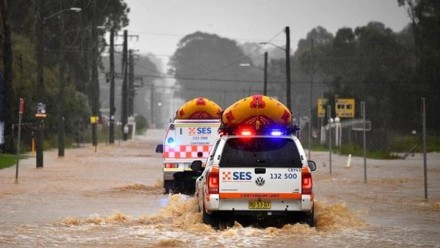Anticipating extreme crises and disruptions: Developing a National Risk Management Strategy
Dr Paul Barnes' PowerPoint slides (PDF 1.98MB)
Coping with natural hazards is a challenge for governments, businesses, and especially communities. Dangerous weather, heat waves, fires and floods come with a range of consequences: often difficult to anticipate and prepare for let alone control.
The cascading impacts from natural hazards means that society and its institutions are unlikely to face simple disruptions but rather a series of systemic failures and related damage within and across essential services and other areas.
Natural hazards are also not the only potential source of significant disruption currently facing Australia. The threat landscape is evolving. Wider factors such as climate/weather variability, disease outbreaks, the increasing complexity of embedded information and communications technology and human creativity in its use, together with emergent interdependencies within and across infrastructure systems, have created significant governance challenges for both the private and public sectors.
Australia does not currently have a National Risk Management Strategy from an ‘all hazards’ context. A National Strategy for Disaster Resilience does exist although it was published ten years ago and is arguably in need of refreshment.
This seminar will explore the structure of a risk management strategy and consider how it could enhance national policy development in the context of an evolving threat landscape.
It will examine the importance of engagement of society and government with science - informed by a national risk management strategy - that recognises the benefits of collaborative thinking and generation of insight into the dynamics of natural and sociotechnical threats.
By registering for this event you are also subscribing to the ANU Institute for Climate, Energy & Disaster Solutions mailing list. You can unsubscribe at any time by clicking on the unsubscribe button at the bottom of correspondence.









